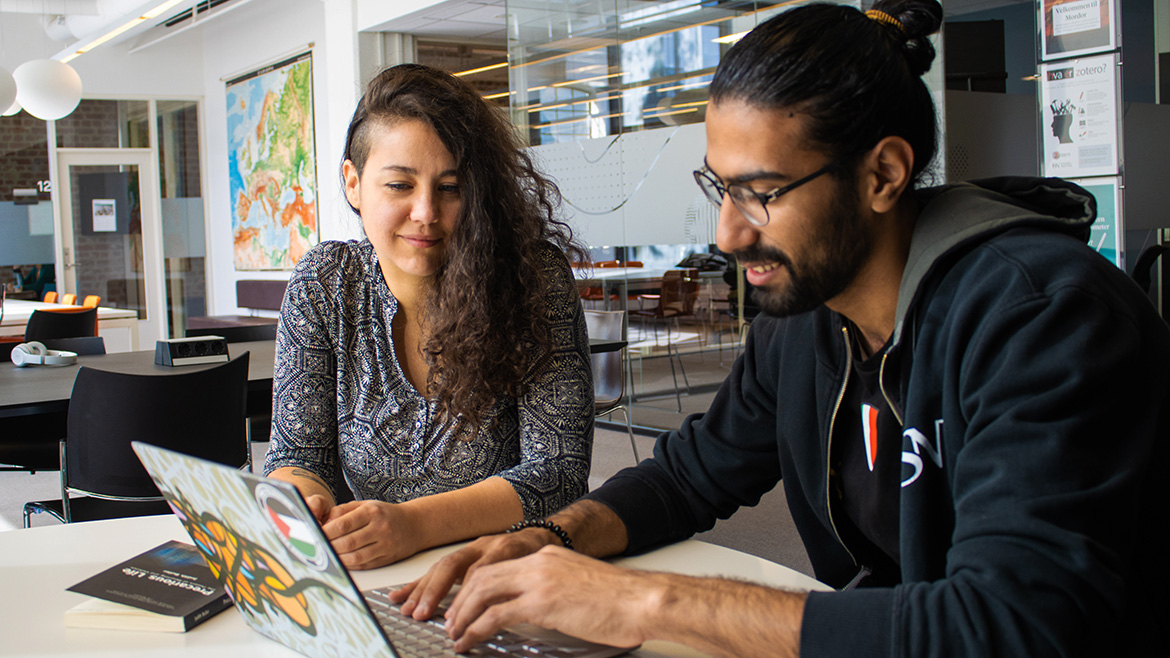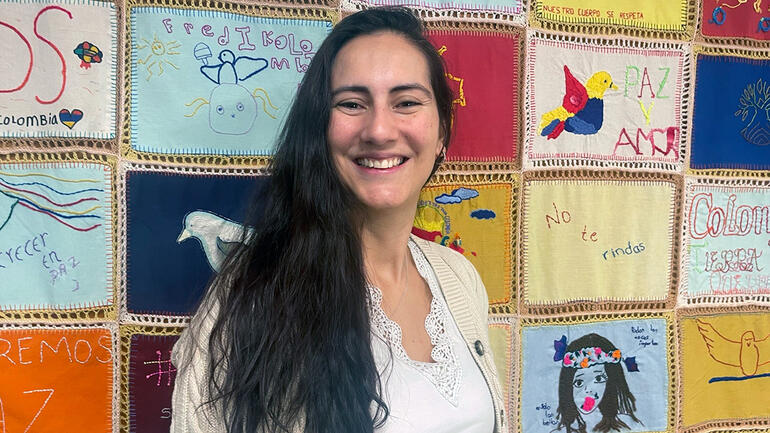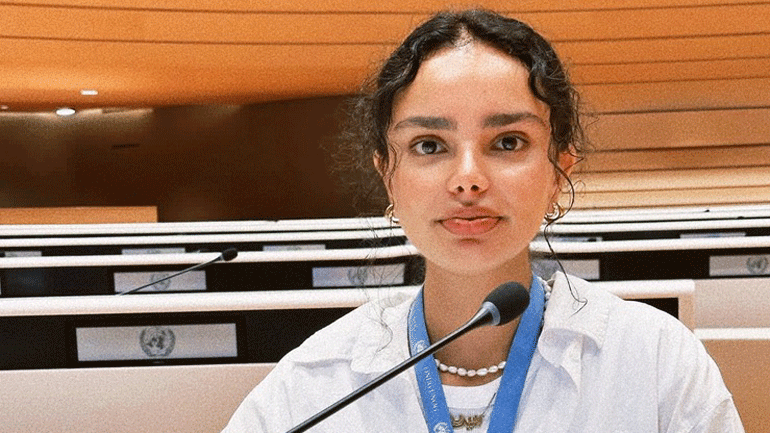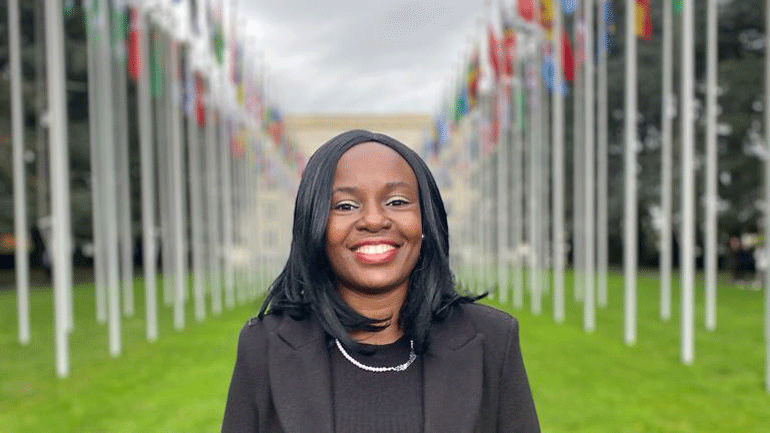
MSc in Human Rights and Multiculturalism
Drammen - Full time
In combining the areas of human rights and multiculturalism, this MSc is unique in Europe.
-
Closing dates: Expired
Study facts
-
Campus: Drammen -
Study level: Master's degree -
Progression of study: Full time -
Start up: Autumn 2024 -
Teaching model: On Campus -
Credits: 120 -
Closing dates: Expired -
Application code: Non-EU 8128 and EU/EEA 8127 -
Semesters: 4 -
Teaching Language: English
This is Human Rights and Multiculturalism
In combining the areas of human rights and multiculturalism, this MSc is unique in Europe: From an interdisciplinary perspective, it examines various interpretations of human rights, and how human rights are perceived in the context of cultural diversities.
The program is designed to accommodate students with degrees in different academic disciplines.
The program has a strong international character as it brings together international scholars and students, contributing to developing intercultural competence, cooperation skills, flexibility and adaptability.
The program has been nothing short of transformative, providing a rich tapestry of learning experiences that have significantly contributed to my professional and personal growth.
Student 2023
Why Human Rights and Multiculturalism?
The MSc in Human Rights and Multiculturalism offers post-graduate education in human rights and multiculturalism for students with a BA containing at least 80 ECTS studies within the social sciences or the equivalent.
You will attain strong analytical skills in issues related to human rights and multiculturalism both at the micro- and macro levels, applying research methods from social and political sciences and humanities.
The program pursues an interdisciplinary approach to human rights and multiculturalism and problem-based learning on real world global challenges. The program is continually reviewed and developed in accordance with the quality assurance system at USN. The curriculum of the degree program is based on strengths in research and development and the expertise of staff within the crosscutting areas of education, international law, philosophy, political science, social anthropology, sociology, cultural and religious studies.
One of the standout aspects of program was the USN-SAR (Scholars at Risk) student advocacy internship, as it brought a seamless integration of theoretical knowledge into real-world scenarios. This hands-on approach allowed me to bridge the gap between theory and practice, enabling me to apply concepts in the dynamic field of human rights and multiculturalism. The practical application of theories has undoubtedly strengthened my understanding and equipped me with invaluable skills for future endeavors.
Student 2023
Where can I work?
With a Master's degree in Human Rights and Multiculturalism you will be able to work in public services and administration, education, media, humanitarian organisations, private corporations and as consultants.
Here are some career examples with former students, who are working as:
Public sector:
- The Norwegian Directorate for Children, Youth and Family Affairs (Bufdir), advisor
- Consultant in The Norwegian Directorate of Immigration (UDI)
- Mission abroad for the UN
- Immigration Appeals Board in Oslo, advisor
- The Norwegian Labour and Welfare Administration (NAV), consultant and manager
- Political and legal advisor to the Norwegian government
- Program director at local Norwegian introduction centres
- "Manager of equity, diversity and inclusion" in a municipality
- The Norwegian Labour Inspection Authority (Arbeidstilsynet), consultant
- "Lead Campaign Officer" in a Commission for Human Rights
- Human Rights specialist at national Human Rights commission
Non-Governmental Organisations:
- Save the Children, volunteer coordinator
- Save the Children, regional advisor
- Red Cross, Coordinator
- Wergeland Centre, specialist
- Refugee Service, specialist
Inter-governmental organizations and funds:
- Project manager in a humanitarian organisation
- UN, civil servants
- UNICEF, project manager
Higher education and research:
- Research assistant
- PhD research fellow
- Assistant professor University advisor
Private sector:
- Human Rights and compliance specialist
- Project manager for sustainable lifestyles
- Consultant
Educational sector:
- Minority adviser in a secondary school
- Teacher in primary school and high school
-
Social educator in a school
What you will learn
Key discourses of human rights, policies, theories of culture, multiculturalism, philosophy of science, education, and real-world challenges within human rights and multiculturalism are addressed throughout the program. Combining the approaches of social sciences, international law and the humanities, you will also acquire experience with interdisciplinary research and practice-based learning.
You will gain an enhanced and more in-depth knowledge in:
- the theoretical bases for human rights and multiculturalism,
- issues in the implementation of national policies,
- contemporary societal human rights challenges
- various theoretical approaches to human rights and multicultural education
- relevant epistemological and methodological discussions.
The MSc in human Rights and multiculturalism seeks to develop:
- the research abilities and analytical skills of the students;
- the students’ capacity to identify, navigate and analyze societal issues and challenges of human rights in contexts of cultural and other diversities;
- the student’s ability to conduct critical and ethical analysis of policy, practice and real-world challenges within human rights and multiculturalism;
- the students’ professional skills in the area of human rights and multiculturalism
- students’ practical skills with regard to academic writing and scholarly work.
Detailed course information:
The MSc in Human rights and multiculturalism is a two-year full time master program consisting of a combination of courses (75 ECTS) and a strong independent research component (45 ECTS master thesis). The MSc program includes a mandatory module in research methodology with research ethics. For the individual courses please see the program description.
Academically, l have been able to critically think, analyse, valuate and equip myself with various tools from a human right perspectives, and apply this in current and real situations happening in life.
Student
Further studies
You gain experience in interdisciplinary research and will also be qualified to pursue academic research in the field of human rights and cultural diversity.
Human rights and culture are highly relevant topics in today's society. From your studies, you will widen your perspective and learn more about yourself in the process.
Student
Internship
An internship offers the opportunity to gain work experience at academic level, enables the student to put theory into practice, and to analyse work experiences in light of their studies of human rights and multiculturalism.
The exposure to social media marketing and the intricacies of podcast research and production were invaluable components of the internship. These practical skills not only added a contemporary dimension to the course but also prepared me for the evolving landscape of advocacy and diplomacy. The ability to draft letters for diplomats and various organizations underscored the course's commitment to providing a holistic learning experience. Collaboration and teamwork were at the core of the internship, mirroring the real-world dynamics of multicultural environments. The opportunity to work with diverse groups enhanced my interpersonal skills and broadened my perspective on effective collaboration. This aspect not only enriched the learning process but also emphasized the importance of collective efforts in addressing complex issues in the realm of human rights.
Student 2023
Get international experience
You can take parts of human rights and multiculturalism abroad. Studying abroad can give you the opportunity to expand your international competence, language skills, personal qualities and adaptability. It can also make you more attractive in the job market. We have agreements with foreign universities and colleges adapted to your studies.
Study Plan
A study plan describes the content, structure and organization of a study programme. To each study plan there is a set of course plans that describe the different courses. In the course plan you will also find a reading list. Below you will find a study model that shows you which courses that are taught in each term. In the study model you'll also find links to each course plan.
Study plan for 2024 autumn
Admission requirements
This programme requires a Bachelor's degree (or equivalent), with at least 80 ECTS credits in the following fields:
-
Law
-
the social sciences (e.g. political science, anthropology, religion, psychology or sociology)
-
education,
-
philosophy
-
history
-
Related fields, as long as the study in question includes courses that are relevant for the study of human rights
You must also fulfil the English Requirements.
Up to seven places may be reserved for students from partner institutions engaged in relevant ongoing projects with USN.
Please read all the information about the admission process before you apply and this year, we’re including a video assessment as part of our online application process for all candidates who fulfill the minimum requirements for this programme. More information comes once we have started to process the applications for Fall 2024.








